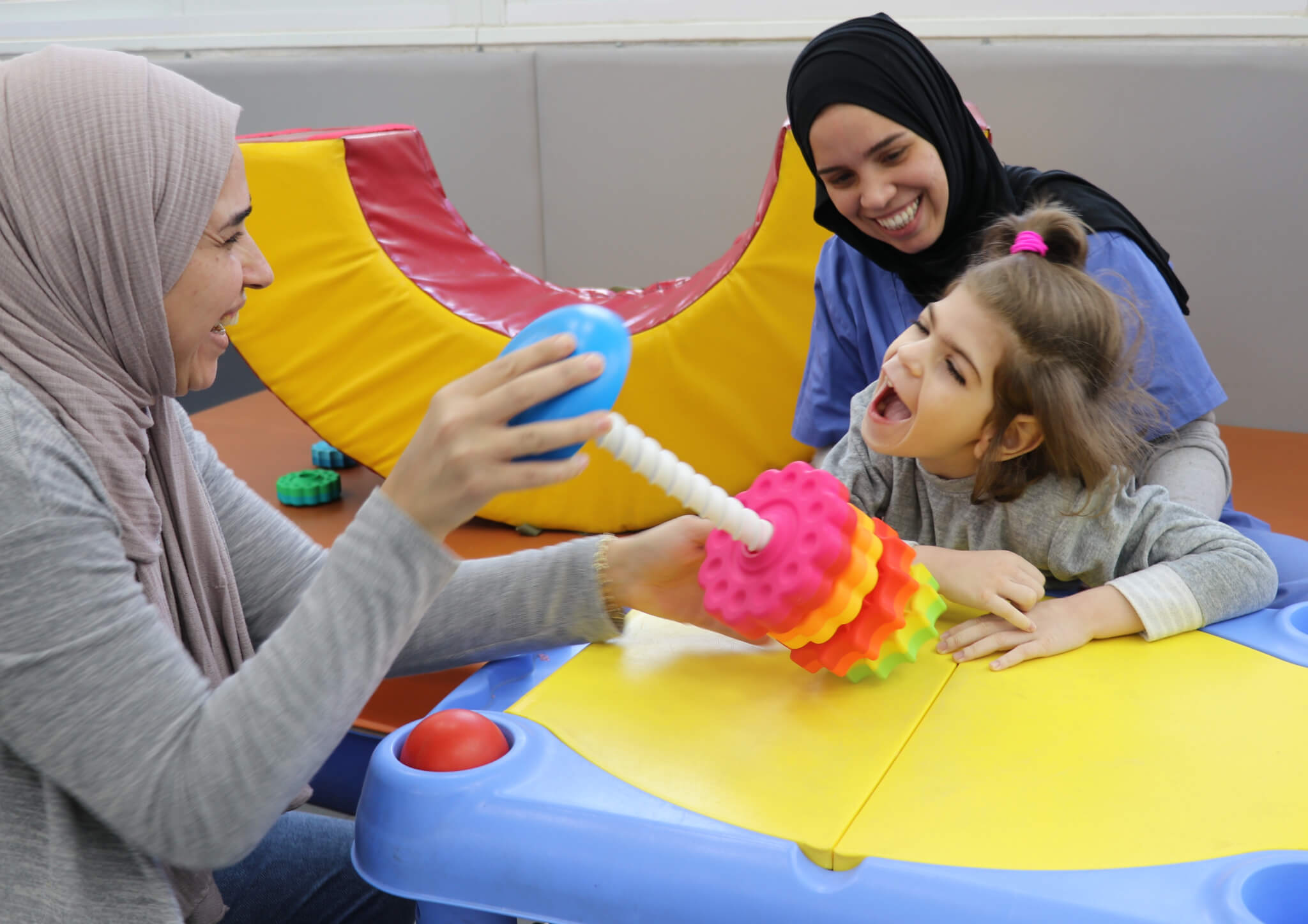Jerusalem Princess Basma Centre for children with disabilities

Project Information
Empowering children with disabilities and their families through comprehensive rehabilitation and inclusive education
Describe the need affecting community
Children with disabilities (CWD) in Palestine face enormous barriers to education, inclusion, and acceptance, and are often subject to unfair treatment on account of their conditions.
UNICEF reports, “Palestinian children with disabilities typically face a particularly dire situation, given the levels of cultural stigma directed at disability and the protracted conflict that surrounds them, which has devastated infrastructure, fractured the economy and overwhelmed service providers.”
Every child counts: understanding the needs and perspectives of children with disabilities in the State of Palestine, 2016
The Jerusalem Princess Basma Centre focuses on one of this report’s key recommendations which emphasizes the first years of children’s lives as the most critical in terms of preventing longer-term disability.
- To improve early detection and implement community and facility-based early intervention programs
Children with disabilities remain one of the most marginalized groups in Palestine, isolated in their communities and with limited access to health care services and education. According to statistics from the Palestinian Census Bureau, (2020) they comprise approximately 15% of all Palestinian children under 18.
The Jerusalem Princess Basma Centre’s response is to reach these children and families in the West Bank through its Outreach Program and in Gaza through its satellite rehabilitation unit based out of Al Ahli Hospital.
How will this Advance project help to address the need?
This project will support our multi-disciplinary Outreach and Rehabilitation teams:
- Children with disabilities will be assessed in poorly served towns and villages across the West Bank
- Best practices will be disseminated to clinics and practitioners across the West Bank
- Children with the most advanced needs will receive residential care and treatment at our center in Jerusalem through our Child Rehabilitation Program
- Families will be enrolled on our residential Mother and Family Empowerment Program to train and support them in their Home Therapy Plan and the needs and rights of their children
- Children and families in Gaza will receive services as day patients at our satellite unit which is treating both chronic and post trauma conditions
Describe the primary goal of the project
Children with disabilities and their families in the West Bank and Gaza enjoy improved well-being through early medical intervention, specialized rehabilitation therapy and capacity building for local Community Based Rehabilitation Organizations.
Describe the change you would like to see in the community as a result of this Advance project
- Increased reach to children with disabilities in the West Bank and in Gaza
- Lives of children with disabilities are improved
- Families of children with disabilities are empowered
- Best clinical practices are shared
Contact Information
Ms. Violette Mubarak
Executive Director
violette.mubarak@basma-centre.org

